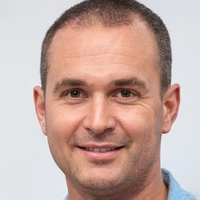What is a high scope in early childhood education?

High scope in early childhood education is an approach to teaching that emphasizes active learning and active problem solving. High scope involves children in constructing their own learning experiences and encourages them to become independent thinkers and problem solvers. It is based on the belief that children learn best when they are actively involved in their learning environment and when they are provided with opportunities to take initiative and to explore their environment.
High scope in early childhood education has been shown to have a number of important benefits for children. It encourages children to explore their environment, to be creative and to think independently. It also helps children develop important skills such as problem solving, cooperation, and self-regulation. In addition, high scope in early childhood education encourages children to take initiative and to be independent.
The benefits of high scope in early childhood education are not limited to the actual learning environment. High scope encourages children to become more confident in their abilities and to take initiative in their own learning. This confidence can then be transferred to other areas of their lives, such as in social situations and in their academic pursuits.
High scope in early childhood education is also beneficial in terms of social and emotional development. It encourages children to interact with their peers and to build positive relationships with adults. It also helps children develop a sense of responsibility and to become more independent and self-reliant.
High scope in early childhood education is an important part of any early childhood program. It helps children develop important skills and encourages them to become independent thinkers and problem solvers. It also encourages children to take initiative and to become more confident in their own abilities. As such, high scope in early childhood education is an important part of any successful early childhood program.
High Scope is an educational approach developed in the 1960s by Dr. David P. Weikart and colleagues. This approach is based on a set of core principles which focus on providing children with active learning experiences, promoting physical and cognitive development, and encouraging children’s autonomy.
The High Scope approach is based on the philosophy that children learn best through active exploration and discovery. By providing children with opportunities to explore and manipulate materials, they can develop their physical and cognitive skills while also developing their autonomy. Through this approach, children are empowered to take the initiative in their own learning, and this helps to foster creativity and problem-solving skills.
The High Scope approach is implemented in many early childhood education programs, such as Head Start and kindergarten, as well as in home settings. In early childhood education, the core principles of High Scope are used to create environments and activities that promote learning. These activities are designed to be engaging and enjoyable for children, and they are tailored to meet the individual needs of each child.
High Scope helps to create an environment that is supportive of children’s development, and it encourages them to take ownership of their learning. By understanding and implementing the core principles of High Scope, early childhood educators can help children to reach their full potential and foster a lifelong love of learning.
High scope in early childhood education is an educational approach that emphasizes active learning, hands-on activities and student participation. It is based on the belief that children learn best when they are actively involved in their learning and can see the results of their actions. High scope encourages children to explore, experiment and make their own discoveries. This type of learning is beneficial for developing cognitive skills, such as problem solving, critical thinking and creativity.
High scope in early childhood education provides children with the opportunity to develop their cognitive skills in a variety of ways. Through hands-on activities, children can explore and manipulate objects, practice problem solving and make decisions. Through observation and exploration, children can develop an understanding of the world around them and learn to think critically. Through interactions with peers, children can learn to share ideas, cooperate and build relationships. Through play, children can develop creativity and imagination.
High scope in early childhood education also provides children with the chance to develop their social and emotional skills. Through interaction with peers, children can learn to interact effectively, share ideas and work together. Through meaningful activities, children can develop their self-confidence, self-esteem and communication skills. Finally, through positive relationships with adults, children can learn to trust and develop a sense of security.
High scope in early childhood education is an effective way to help children develop their cognitive, social and emotional skills. By providing children with engaging, hands-on learning experiences, children can learn to think critically, explore the world around them, interact with others and develop their creativity. This type of learning can help children grow and develop in a healthy and meaningful way.

Write a comment